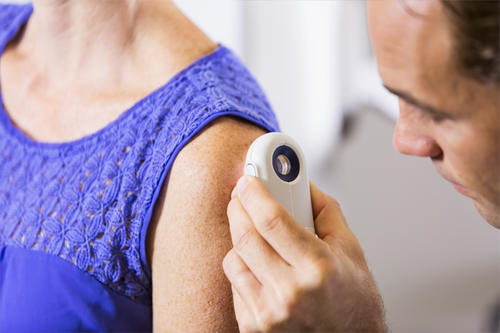
A skin doctor may seem an unlikely physician to collect data on patients’ sexual and gender identities. But that should be the norm, says a resident University of Minnesota dermatologist, who has sounded a clarion call to his fellow dermatologists to routinely collect sexual orientation and gender identity (SOGI) data in dermatology settings because this can lead to better, culturally sensitive care.
“Sexual and gender minority populations (SGM), including people who are lesbian, gay, bisexual, and transgender, face unique health disparities, such as dermatology-specific health disparities,” writes Matthew D. Mansh, lead author of an editorial in the journal JAMA Dermatology. Mansh’s co-authors are doctors at Mount Auburn Hospital in Cambridge, Massachusetts, and at Kaiser Permanente in San Francisco.
With the editorial, Mansh and his colleagues have taken a lead role as advocates for standardizing SOGI data collection in a subspecialty clinical setting—that is, outside of primary care settings such as general internal medicine, family medicine, or pediatrics.
The physicians state that routine SOGI data collection will benefit SGM patients in three areas.
“First, rates of certain conditions—including related risk factors—and preventative health guidelines differ for SGM patients,” the researchers say. Second, “collecting SOGI data can help dermatologists improve interactions with SGM patients,” many of whom, the researchers note, have had prior unpleasant interactions with health care providers. Third, dermatologic research can benefit from this kind of data.
- Categories:
- Health




